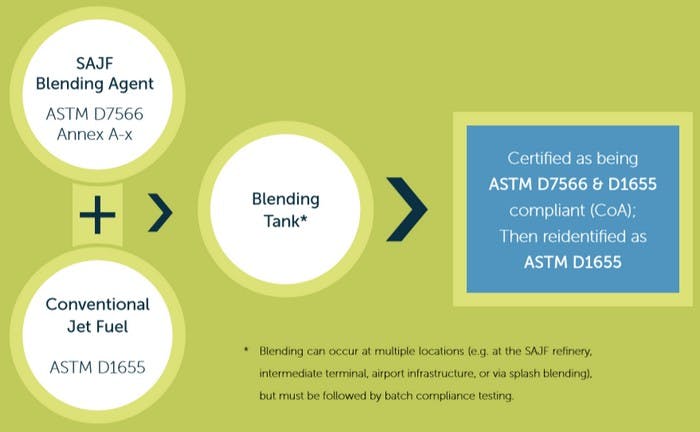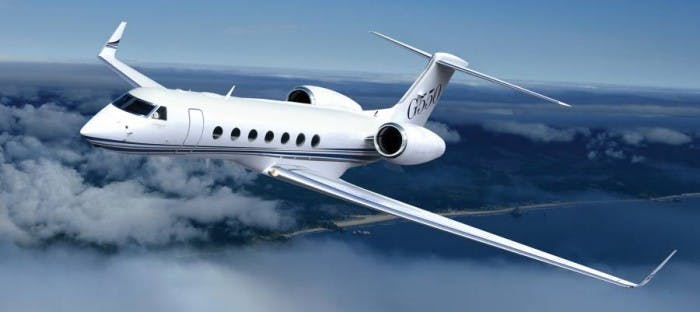Will Sustainable Alternative Jet Fuels take off in business aviation?
At PrivateFly, we keep a close eye on R&D in aviation – and we’re hoping to see sustainable energy sources fuelling private jet charter before too long.
There was an exciting development this month, with Gulfstream Aerospace announcing its first sale of Sustainable Alternative Jet Fuel (SAJF). And in Europe, the European Business Aviation Association (EBAA) reiterated its support for the development of SAJFs at its recent AGM.

These alternative fuels, which could help the industry significantly reduce its carbon footprint, are still relatively unknown. Yet they are already available and certified by civil aviation authorities and major aviation stakeholders.
What is a ‘Sustainable Alternative Jet Fuel’?
The term Sustainable Alternative Jet Fuel (SAJF) refers to a range of non-petroleum fuels, developed to reduce CO2 emissions and the ecological and social impact of aviation.
As the name suggests, this is an alternative to conventional fuel, but which fulfils the same requirements. It is produced in a way that is sustainable both for the environment and the economy and is derived from alternative sources – such as cooking oil, vegetable oil, waste or agricultural residues.
Are SAJFs safe?
In aviation, safety is paramount, at all levels. So any new fuel is subjected to rigorous and prolonged testing before being approved.
Sustainable Alternative Jet Fuels have been certified and validated by the industry. They meet detailed criteria established by civil aviation authorities and major aviation stakeholders (including aircraft manufacturers and engine manufacturers). They’ve been tested in the laboratory, on the ground and under extreme flight conditions.
SAJFs have the same properties as conventional Jet-A and Jet A-1 fuels. They are interchangeable and compatible with these conventional fuels, and current rules mean they must be mixed with conventional fuel and used as a blend. They can be safely mixed during transport, airport storage or in the fuel tank of the aircraft.

Blending ensures a maximum level of safety. But it is planned to reduce the proportion of conventional fuel in the mix over the coming years, as research continues to develop.
Can I charter a private jet fuelled by Sustainable Alternative Jet Fuel?
While the types of private jet aircraft we offer for charter are compatible with SAJFs, it’s still very rare to be able to offer this option. The low availability of these fuels means there isn’t (yet) commercialisation on a large scale.
Just a small number of airports offer fuelling with SAJFs at the moment – the primary ones being in Los Angeles, Stockholm, Oslo and Bergen.
However, recent initiatives are seeing several other airports receiving deliveries on an ad hoc basis, with Geneva and Brisbane airports announcing plans to offer a continuous supply.

And Gulfstream Aerospace recorded its first Sustainable Alternative Jet Fuel sale in March 2019. The customer, a US-based owner of a G550, purchased 20,000 lbs of SAJF (9,072 litres). Gulfstream also sponsored one of the largest SAJF events for business aviation, at Van Nuys Airport in LA.
So awareness is definitely on the increase.
Why should SAJFs be used on a larger scale?
While other forward-thinking environmental initiatives are taking place in aviation, SAJFs are a realistic solution, already available and approved, to reduce Co2 emissions.
That’s not to dismiss other projects at all. There are great strides taking place in electric, hybrid or solar aviation – such as Airbus E-Fan’s English Channel crossing and the round-the-world achievements of Solar Impulse 2. And we’re very much behind these concepts. But they are not a commercial reality at the moment, whereas SAJFs are already here.

When will it be possible to charter a private jet powered by SAJFs?
Gulfstream’s recent initiatives and the levels of business aviation industry backing give us hope that more operators will start using SAJFs in the near future.
The business aviation industry announced a series of commitments on climate change in 2009, aiming for carbon-neutral growth by 2020 and 50% reduced emissions between 2005 and 2050.

Among the solid measures in place, the CORSIA program (Carbon Offsetting and Reduction Scheme for International Aviation) aims to offset the CO2 emissions of international aviation, to stabilise emission levels. Some private jet operators are subject to CORSIA, and using SAJFs would enable them to meet their requirements, without having to trade carbon credits.
For the latest company and industry news from PrivateFly, sign up to our weekly newsletter, and follow us on Facebook, Twitter, LinkedIn and Instagram.
Related content

Latest private jet news & innovations on show at EBACE 2019

Supersonic aircraft – soon to fly again?



